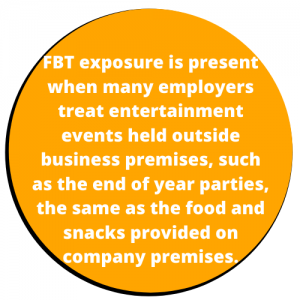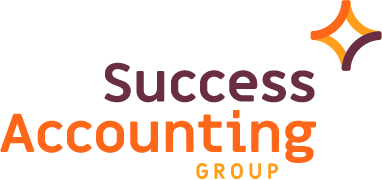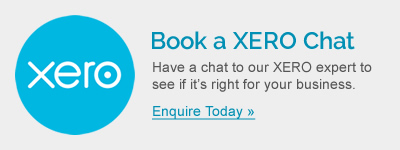How ATO Detects FBT Exposure

The table below shows the disclosure items/tax return labels used by the Australian Tax Office (ATO) to begin a review to detect when an employer’s company has unpaid FBT liabilities.
DISCLOSURE ITEM / RETURN LABEL
Unpaid FBT
Employee’s Contributions to Fringe Benefits
Entry 6, Label I of the ‘C Return’
Entry 46, Label T of the ‘T Return’ 
The employee’s income disclosure in this label confirms to ATO that some benefits have been transferred to the employee. Further and with this knowledge, ATO may confirm if the employer duly entered the necessary FBT return. If the employer lodged no return, ATO would establish if the employer needed to lodge a return under this label.
Contractor, sub-contractor and commission expenses
Entry 6, Label C of the ‘C Return’
Entry 5, Label C of the ‘T Return’
Making a return under this label allows the ATO to determine if an employer has erroneously handled an employee like an external consultant/independent contractor. Incorrectly treating an employee as an independent consultant means the employer has understated FBT liabilities on benefits provided to the supposed employee.
Motor vehicle expenses
Entry 6, Label Y of the ‘C Return’
Entry 5, Label L of the ‘T Return’
Making a return under this label means the employer’s company may be providing benefits in the form of motor vehicle running expenses, e.g. fuel costs, repair or insurance premiums. Therefore, the ATO can confirm if the employer entered an FBT return record and required to enter it.
Superannuation expenses
Entry 6, Label D of the ‘C Return’
Entry 5, Label D of the ‘T Return’
This disclosure under label D means the business organization incurring a pension expense has at least one employee working in that business organization. Such disclosure may prompt the ATO to confirm if the expenses towards a pension plan have been treated as they should for FBT purposes.
Total salary and wages expenses
Entry 8, Label D of the ‘C Return’
Entry 44, Label L of the ‘T Return’
The disclosure of expenses under this label means that the business has one or more employees working for that business organization. With such background information, the ATO may want to know what benefits have been extended to employees and if they have been treated as they should for FBT purposes.
*Important to note: It does not necessarily mean that an employer has to lodge an FBT return because employee benefits have been declared. A lodge for FBT return is only necessary after an FBT liability is brought to light; otherwise, it may be lodged as Nil to confine ATO’s audit to a period of three years.
The purpose of the above table is to show the tax return labels that help the ATO detect employers’ FBT exposure cases. The return labels only provide the information to base commencement of a probe/review by the ATO.
After that, the ATO typically will want to obtain copies of financial statements in the employer’s business for scrutiny.
The ATO commonly examines business expenses in the table below during a review:
TYPE OF EXPENSE ACCOUNT
FBT RISK OF EXPOSURE
Employee / Staff Amenities
It is common for business employers to provide employees with coffee, tea, milk, biscuits at the workplace. Employee amenities are exempted from FBT as long as they are offered during a working day and consumed within the company premises.
FBT exposure is present when many employers treat entertainment events held outside business premises, such as the end of year parties, the same as the food and snacks provided on company premises. Christmas gifts given to employees are also considered employee amenities. Noteworthy, gifts within the entertainment context such as theatre/football/movie tickets are liable for FBT.
Advertising & Promotional Expenses
Sponsorship of events is a common method for businesses to grow their brand recognition and boost customer reputation. There is no FBT payable when the sponsorship event is done solely for the business’s advertisement, such as through signage and advertising rights.
The risk of FBT exposure comes up when part of the sponsorship event benefits such as foods, drinks or leisure are distributed directly or indirectly to employees. Many sponsorship events for businesses include a corporate box –directly conferring benefits to the staff members.
Travelling Expenses
It is fair and completely acceptable for an employer to cover their employee’s business-related travel costs. For this reason, the ATO has developed guidelines for travel allowances to streamline compensation structures for employees who travel for work-related reasons.
Unfortunately, the employee invites FBT risk by extending travel to attend to personal matters, e.g. leisure, thus incurring more nights beyond the official conference timelines. Additionally, the employee may have a family member or associate join their prolonged travel, creating more FBT exposure.
Donations
No tax is levied on general donations made to Deductible Gift Recipients (DGR) from an FBT point of view.
However, FBT risk can arise where donations from fundraising events are passed to an employee, often through entertainment benefits such as meals. For instance, an employer can invite their employees and their spouses to a fundraising event and issue them with a meal/drinks; the provision of the meal/drinks is the conferment of an entertainment benefit.
Motor Vehicle Expenses
It is common for employers to provide motor vehicle benefits to employees. There is no FBT when the motor vehicle is provided for the employee’s personal use, provided the employee’s contribution for the benefit is deducted from the after-tax funds.
A common employer’s mistake is to base the attenuated value in financial statements to calculate estimated depreciation and interest rates. Normally, the employer must account for the estimated depreciation charge using the operating cost method to calculate the taxable value of a motor vehicle benefit.
The problem comes when a business that is allowed to use accelerated depreciation calculates the motor vehicle’s value using financial statements, thereby undercutting the accurate value of employee contribution that is being determined. Consequently, the ATO holds the employer accountable for FBT liabilities and may impose penalties on their business.
Motor Vehicle Expenses (Workhorse Vehicles)
Cars that are not primarily meant to transport passengers, like panel vans or dual-cabs, are exempted from the general FBT car treatment, provided any private use of the car is completely incidental and inconsequential to business travels. These cars are called Workhorse Vehicles.
The ATO has developed and issued guidelines for new safe harbour, defining what extent of car use is permitted as incidental and inconsequential travel.
We have already circulated information on these safe harbour guidelines, which you can find through this link.
An additional and frequent mistake with FBT treatment of workhorse vehicles is failure to get the employees to fill in the necessary documents as part of the FBT exception’s approval process.
Employee Loans
Provision of loans to employees does not necessarily bring about a case of FBT liability.
Nonetheless, a claim for FBT may apply when the loan’s interest rate is zero or significantly below the market rates.
In the review of the FBT mandate, the ATO is legally permitted to access other data sources to certify that employers are compliant with the necessary law. For instance, ATO can access government records describing an employer’s purchase of motor vehicles and make sure all purchases and payments are accounted for in the organization’s financial statements and from an FBT perspective.
Considering the legal strength supporting ATO, coupled with the government’s robust quest to increase revenue generation, it is key that employers comply with respective FBT requirements at all time.
Questions?
What is more, the ATO has indicated plans to increase focus on FBT this year; to ensure your business is compliant, please contact your fringe benefit tax advisor at Success Accounting Group, and they are eager to help you. Contact our office today for more information (03) 9583 0550 or send us an email

About Lan Nguyen
Lan is the Founder and Chief Strategist at Success Accounting Group, Melbourne based CA firm. In a matter of short 8 years she has built up a reputable Chartered accounting firm with 3 offices and a team of 6 professional accountants and support team members. Her mission is to provide Innovative and Strategic Financial advice to help her customers make smarter financial decisions today for a brighter future.
Success Accounting Group is for established business owners who would like help to grow a sustained business. As a business owner you understand what drives your business success with our accounting team taking care of the rest.




